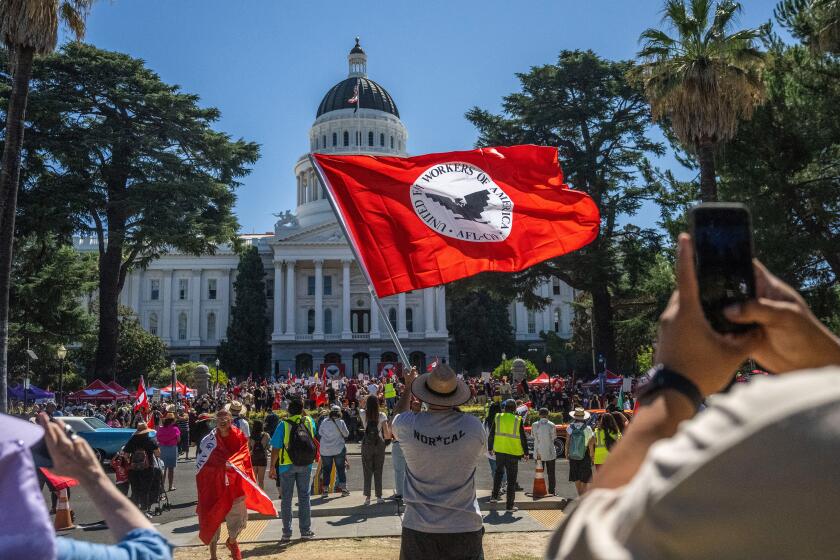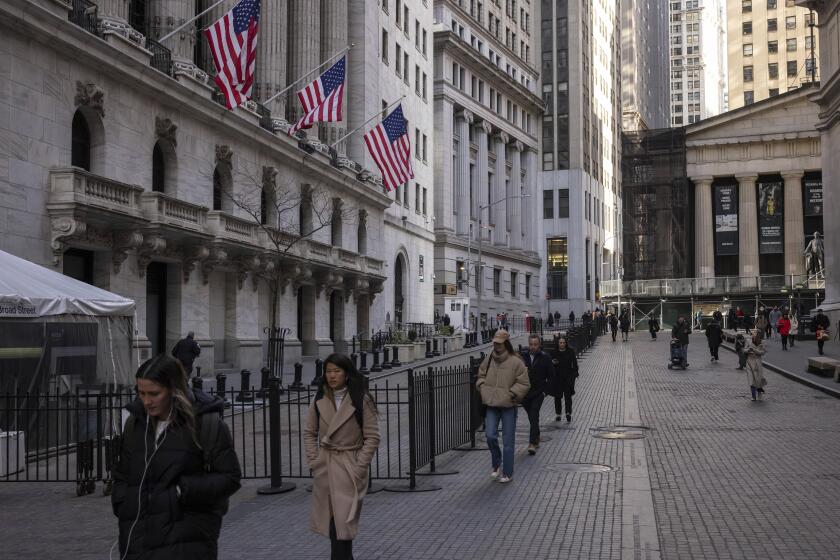Head of AT&T; Computer Unit Resigns Post
American Telephone & Telegraph’s efforts to revitalize its shaky computer division suffered a potential blow Monday when the unit’s charismatic and widely respected leader announced his resignation.
The departure of Vittorio Cassoni for a prominent post at Ing. C. Olivetti also fueled speculation of a deepening rift between AT&T; and the Italian office equipment maker. AT&T; recently broke off negotiations to increase its 22% stake in Olivetti.
In the 18 months Cassoni served as president of AT&T;’s data systems group, the unit’s losses dropped dramatically. AT&T; also joined forces with several other major electronics companies to expand sales.
Cassoni, 45, will be replaced by Robert Kavner, 44, AT&T;’s chief financial officer and a former certified public accountant with the firm of Coopers & Lybrand. Cassoni, who headed Olivetti’s American operations before joining AT&T;, will rejoin Olivetti as its managing director, a significant promotion.
Analysts were disappointed with Cassoni’s departure, which came a week after the sudden death of AT&T; Chairman James E. Olson. Several analysts also were unimpressed with the credentials of Cassoni’s successor. Nevertheless, AT&T;’s shares closed at $27.25 Monday, up 12.5 cents, on the New York Stock Exchange.
Potentially Negative
Maria Sbrilli, an analyst with Smith Barney, Harris Upham & Co. in New York, said Kavner would differ in style with Cassoni, who cut a distinctive profile at AT&T; with his double-breasted suits, Italian accent and Old World charm.
“Kavner isn’t as charismatic and flashy as Cassoni, but he has his own sort of presence,” Sbrilli said.
Ulric Weil, a Washington financial consultant, said Cassoni’s departure could be viewed only as “a neutral or potentially negative development” for AT&T.; “It certainly cannot be viewed as a vote of confidence,” Weil said.
Analysts praised Cassoni’s efforts to revive AT&T;’s computer division, which had been losing nearly $1 billion a year as recently as 1986. During Cassoni’s tenure, analysts said, annual losses were cut by more than two-thirds, the product line was strengthened and the company emerged as a strong contender for a pending $3.5-billion Air Force contract.
Cassoni also was credited with creating an important alliance between AT&T; and Sun Microsystems, a computer maker, and with building momentum for the effort to make AT&T;’s computer operating system, UNIX, an industry standard.
Although analysts said Cassoni leaves behind a strong blueprint for the future, some expressed concern that AT&T; may lack the will or ability to execute it.
“Kavner is clearly not a computer guru,” Sbrilli said. “The computer industry changes so fast that it’s difficult to envision a strategy enduring enough to be taken off the shelf and implemented when it’s needed. The leaders need to have a vision themselves as well.”
AT&T; discounted speculation that Cassoni’s departure was a new sign of tension with Olivetti and said the move was “absolutely unrelated” to differences that emerged between the companies earlier this month.
Olivetti announced two weeks ago that AT&T; would not boost its stake in the Italian company beyond its current 22% stake because of “significant basic differences.”
Some analysts speculated that Cassoni’s return to Olivetti was De Benedetti’s way of striking back at AT&T.;
But analyst Robert Morris of Prudential-Bache Securities said De Benedetti probably made the move to strengthen Olivetti’s top management.
“When we brought Vittorio to AT&T; in 1986, it was understood that he would eventually return to Olivetti,” concurred Robert Allen, who was named AT&T; chairman last week.






